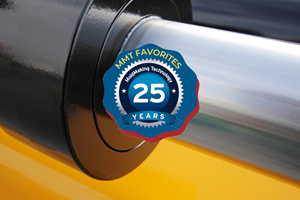SEO: Three Letters That Will Change the Way You Do Business
If you own a small manufacturing business and have a Web site or if you are looking to launch one in the near future, learning a little bit more about search engine optimization is something you might want to consider.
By maximizing your search engine optimization (SEO) capabilities, you are helping to improve the volume and quality of the leads that you generate from the Web via search engines such as Google and Yahoo!. Naturally, the higher your Web site ranks on Google and Yahoo!’s search pages, the more potential customers that will visit your site. I know this probably sounds confusing, so let’s break it down.
Google and Yahoo! can be your best friends or your worst enemies, especially when it comes to SEO. Because of the way that Google and Yahoo!’s algorithms are created, they are ever-changing, constantly affecting your Web site’s ranking. There is no rule book created for SEO, so you have to stay up-to-date on any and every change that is made to search engine algorithms. One change to an algorithm can completely alter where your page ranks in search results.
It’s often difficult to measure the value of SEO because results aren’t immediate. Sound practices are important to ensure optimum future results. Patience is a virtue, and that no matter how hard you work at maximizing your presence on the Web, you will not see results overnight—but focusing on SEO will pay-off for your business, I can guarantee that.
The following serves as a good foundation to start maximizing your Web site’s SEO capabilities:
Content is King: The content that you have on your Web site is extremely important when it comes to SEO. Be sure to highlight the processes performed at your shop, the equipment you use, the industries you serve, the products that you make and any phrases that your prospective customers will respond to or search for.
Meta Tags: A Meta Tag is a page definition that is coded into a Web site. For the sake of SEO, you want to make sure that all of your Web pages have unique Meta tags, most importantly title tags, Meta keywords and Meta descriptions. For more information about Meta tags, check: http://en.wikipedia.org/wiki/Meta_tags.
Inbound links: The more inbound links, or links coming from other Web sites directly to your site, the more valuable your site becomes. Remember that all sites linking to your site must be in context in order to be deemed as valuable. Google and Yahoo! recognize Web sites with a high number of relevant inbound links as more valuable members of the Internet community. Once you become valuable to search engines, you receive a higher ranking because you are more valuable to the internet community as a whole.
.EDU & .GOV: All inbound links are not created equal. Links coming from educational or government sites ending in. EDU or .GOV are highly weighted because of the high level of credibility associated with these sites. Offer an incentive for your .EDU and .GOV customers and prospects if they link back to your site.
SEO Tools: There are a number of tools and forums that can help you track and make sense of your SEO success (see four Web sites below).
- Google Analytics http://www.google.com/analytics/
- Google Web site Optimizer: http://services.google.com/websiteoptimizer/
- Search Engine Watch: http://www.searchenginewatch.com
- Search Engine Forums: http://www.searchengineforums.com
Understanding and implementing SEO strategies for your company’s success on the Web is an important task, but by accomplishing the basics, you will notice a large impact on the effectiveness of your Web site and a direct impact on your bottom line.
Related Content
Line Width vs. Depth Ratio in Laser Engraving
A laser does not produce 90-degree sidewalls. It requires a certain amount of draft in order to produce the required pattern.
Read MoreLaser Welding Versus Micro Welding
The latest battle in finely detailed restoration/repair of mold materials.
Read MoreHow to Correctly Size a Hydraulic Cylinder
This week Randy shares steps for correctly sizing a hydraulic cylinder on a mold.
Read MoreHands-on Workshop Teaches Mold Maintenance Process
Intensive workshop teaches the process of mold maintenance to help put an end to the firefighting culture of many toolrooms.
Read MoreRead Next
How to Use Continuing Education to Remain Competitive in Moldmaking
Continued training helps moldmakers make tooling decisions and properly use the latest cutting tool to efficiently machine high-quality molds.
Read MoreHow to Use Strategic Planning Tools, Data to Manage the Human Side of Business
Q&A with Marion Wells, MMT EAB member and founder of Human Asset Management.
Read More














